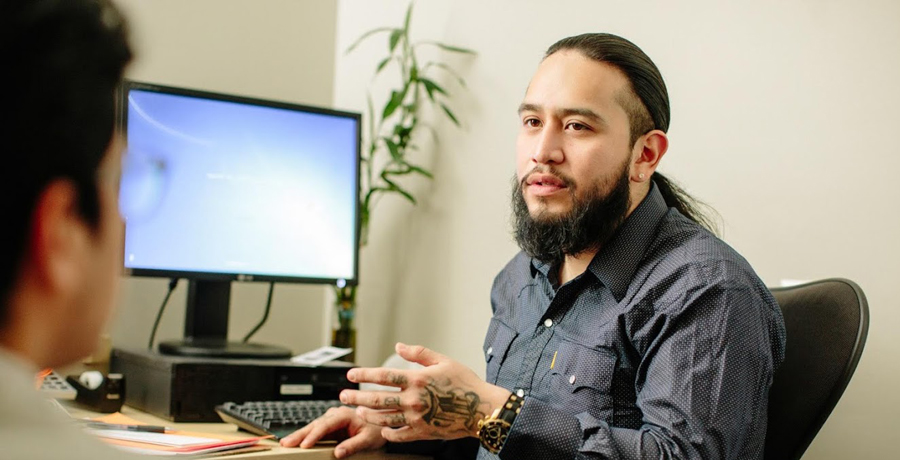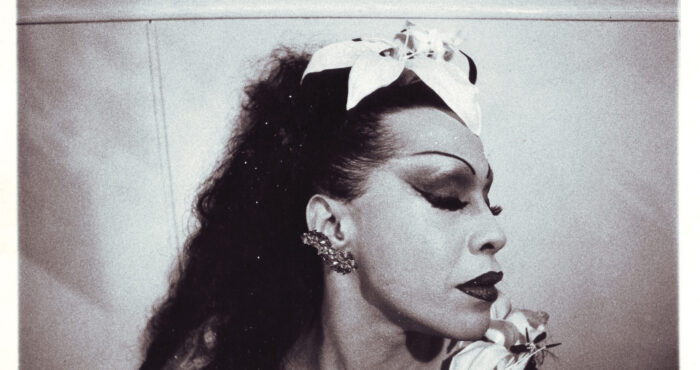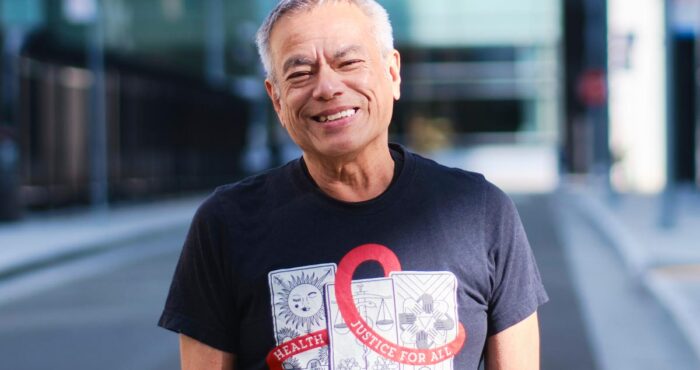Confronting the challenge of bringing HIV care to people

“Linkage to care” is a well-spoken mantra in the field of HIV: Make sure that people who are living with HIV are seeing an HIV care provider and have access to HIV medications. As simple as it may seem, the changing nature of San Francisco’s HIV epidemic means that more and more people are not accessing—or are not able to access—HIV prevention or care from traditional medical clinics.
HIV providers and frontline staff must confront the challenge of bringing HIV care to people—beyond simply linking people to care.
“Access to HIV care is so much more than making sure a person has a place to receive medical treatment and can afford it,” said Julie Lifshay, MPH, PhD, from San Francisco AIDS Foundation.
“Even if a person knows where to go and has insurance or a way to pay for care, they may not be able to afford the bus ride to get there. Or they can’t navigate the health system to make an appointment, they can’t afford their medication copays, or they can’t pick up prescriptions because that would mean missing their place in the food line. It’s complicated, and there are so many things that can put HIV care just out of reach,” said Lifshay.
“People who are unhoused face a lot of barriers accessing care,” said Beth Rittenhouse-Dhesi, MS, from San Francisco Community Clinic Consortium. “It’s not as easy as walking into a clinic and getting needs met. Because of stigma, many people have had bad experiences and so they choose to stay away. The other issue is that people living on the street are dealing with a lot of survival issues. They’re worried about food, water, shelter and clothing. So even very serious health concerns can be put on the back burner.”
In San Francisco, 20% of new diagnoses were among people experiencing homelessness, a proportion which has been increasing in recent years. Getting to Zero SF, San Francisco’s plan to reach zero new HIV infections, zero AIDS-related deaths and zero HIV stigma hinges on the success of reaching and providing services to people experiencing homelessness.
Ensuring that people living with HIV have access to HIV care and medications not only improves an individual’s health, it also prevents transmission since people with undetectable viral loads do not transmit HIV.
The recently-established POP-UP clinic at Zuckerberg San Francisco General Hospital is one example of how HIV services can be delivered in ways that fit into the lives of people experiencing homelessness.
POP-UP is open to people who are homeless or unstably housed, are off antiretrovirals or have a detectable viral load. The program sees people on a drop-in basis without appointments, starts people on antiretrovirals and provides comprehensive medical care, medication storage, food, clothing, housing assessments, mental health care and gift card incentives for staying in care.
“We call it POP-UP because when people come into the clinic, our team grows around them and we work to meet their needs and concerns,” said Elizabeth Imbert, MD, MPH from Zuckerberg San Francisco General Hospital. “We don’t start with the medical stuff—we try to get to know them, figure out what they want, and what’s important to them. We find out what their health goals are, what has gotten in the way [of meeting goals], and how we can help meet them.”
Since January of 2019, over 95% of people in POP-UP have started on ARVs, and more than half (32 out of 59) are virally suppressed, reported Imbert at a Getting to Zero meeting in December 2019.
Street Outreach Services, of the San Francisco Community Clinic Consortium, reaches people who are unhoused by delivering services in a mobile medical clinic. Most often, medical providers treat skin and soft tissue infections, abscesses, podiatry problems and provide support for substance use.
Street Outreach Services does not provide ongoing treatment for chronic conditions including HIV, but the team does connect people with regular care, help people figure out transportation to medical appointments, and follows up with clients to make sure they receive HIV care.
Rittenhouse-Dhesi said the van frequents neighborhoods that not only have homeless residents but also a low concentration of service providers.
“We provide care to anyone who is unhoused—our goal is to connect with people in their own environment of places where they’re gathering. That may be a camp, or another place outdoors, or at a meal program. The whole objective is to come to people, and not always expect people to come to a four-walls clinic. After you make that initial relationship, you can help people navigate into other services,” said Rittenhouse-Dhesi.
At San Francisco AIDS Foundation (SFAF), a new program reaches Latinx community member immigrants experiencing homelessness through a group of community health educators.
The “Todos Somos Familia” project, though Latino Programs at SFAF, recruited and trained a group of currently and formerly homeless Latinx immigrants on topics such as overdose prevention, accessing social services, HIV prevention and getting into HIV care. In turn, members of the program reached out into the community and into their networks to share HIV and health information and services, facilitating access to case management, drug treatment, testing, PrEP and HIV care.

“There is a lack of investment in reaching immigrants without housing,” said Jorge Zepeda, from SFAF. “These individuals may not be aware of the services they can access, and may not trust them. This project helped SFAF become a safer and friendly space for Spanish-speaking communities, and showed that we can reach people with these services if we do so in culturally competent ways.”
“We’re seeing these great disparities in HIV in San Francisco,” said Lifshay. “It’s because we are dealing with social determinants of health including income disparities, the housing crisis, displacement issues and racism. We have to address those things to get to zero. It’s such a big task, but a smaller piece is making sure our resources go to the people most impacted by these issues. We have to reach homeless folks with HIV care—we must do a better job of that.”










